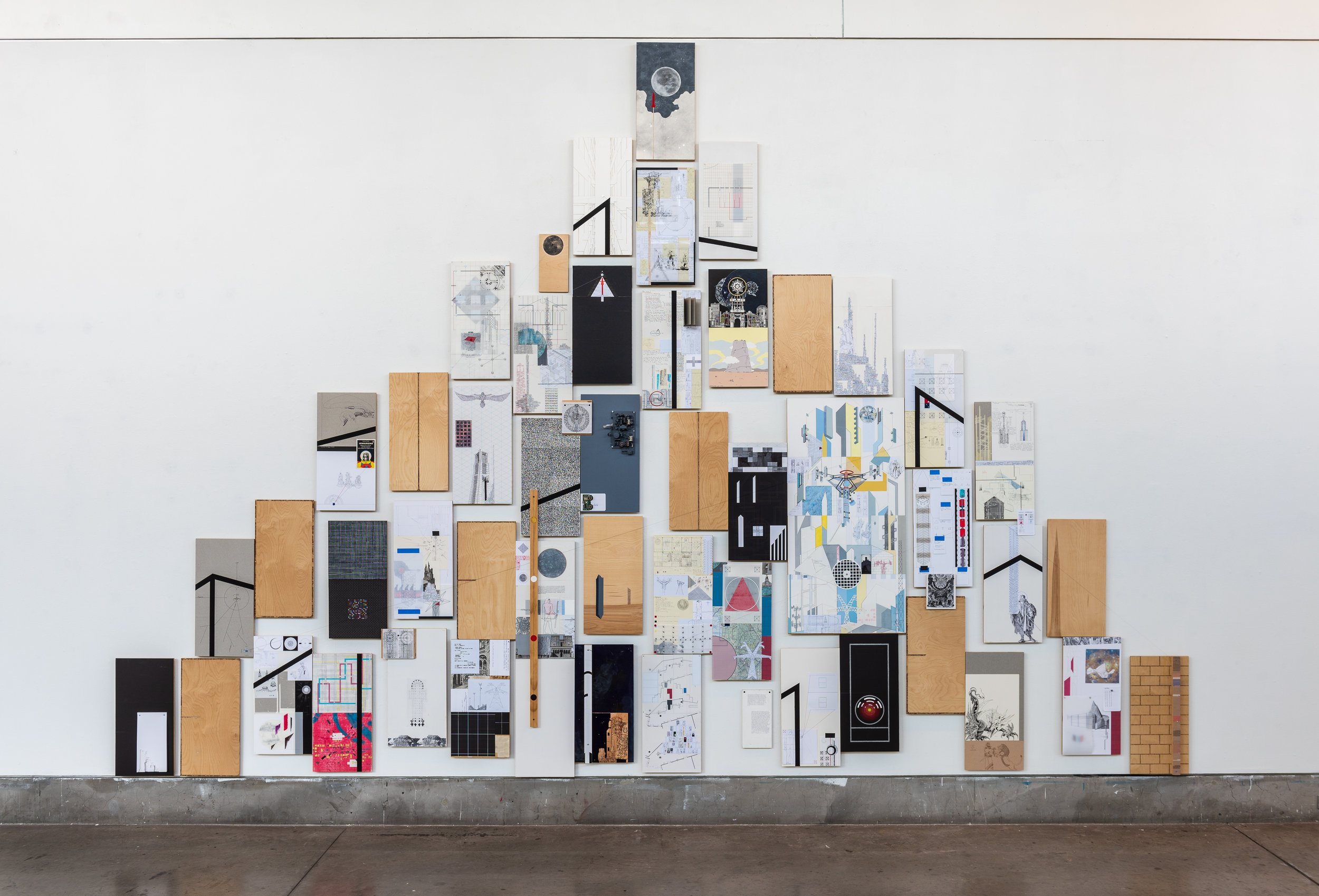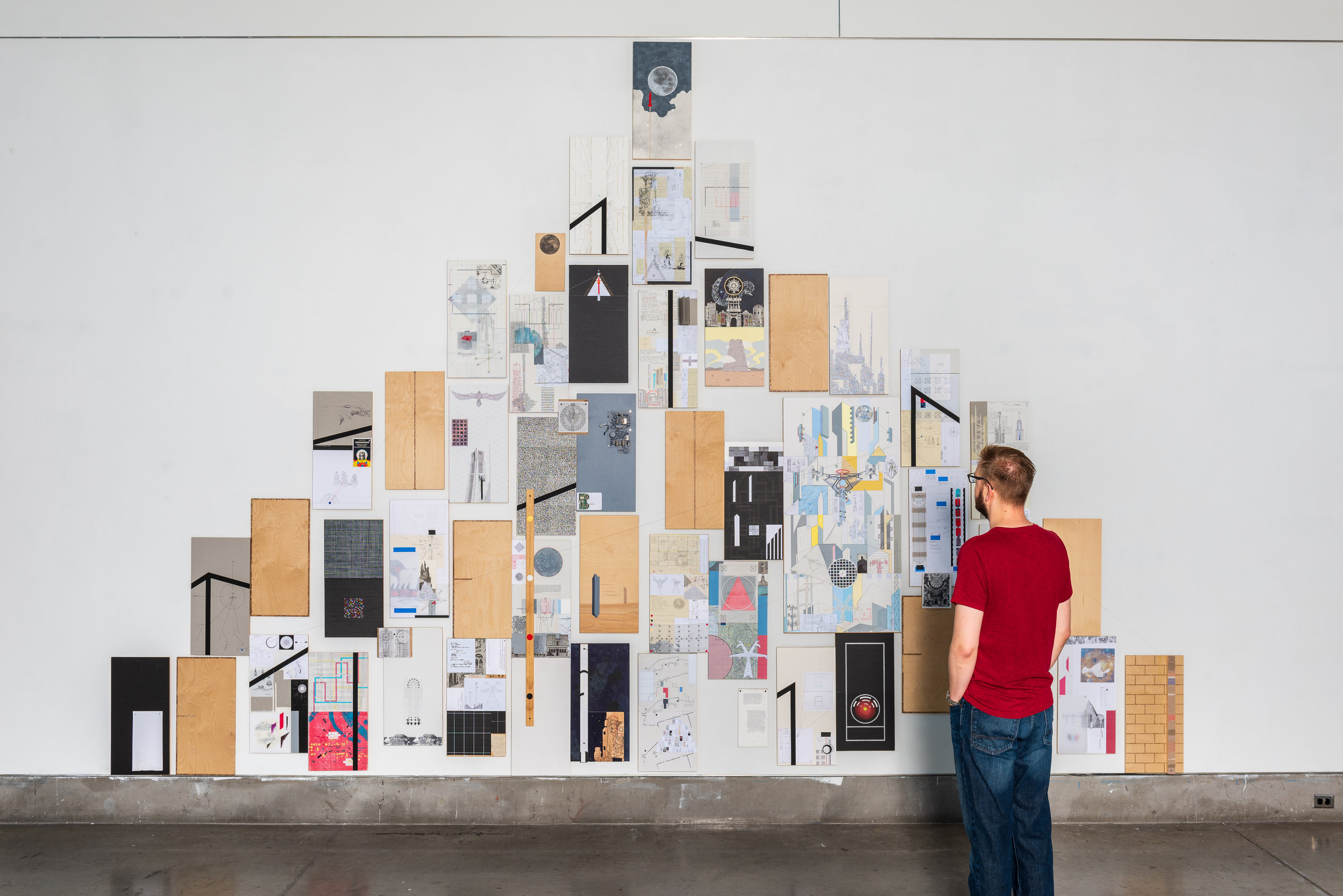MFA Thesis Exhibition at the Maryland Institute College of Art. 2019. Installation photos by Dan Myers.
Statement:
Edificial Epistemologies—mystic architectures of the mind and aesthetic aspects of cognition.
“All men by nature desire to know. An indication of this is the delight we take in our senses; for even apart from their usefulness they are loved for themselves; and above all others the sense of sight…even when we are not going to do anything, we prefer seeing (one might say) to everything else. The reason is that this, most of all the senses, makes us know and brings to light many differences between things.” (1) Also, “human understanding…is specifically limited in itself, and in this sense there is no such thing as a purely objective knowledge of the world standing outside the sphere of the human subject. Neither the agreement of all possible individual observations nor the use of means which extend the reach of the senses can get beyond this sphere, which conditions both the world as a knowable object and man as a knowing being…According to the modern point of view science is built up exclusively on the basis of experience. From the traditional point of view, experience is nothing without that core of truth which forms from the Intellect, and around which the individual experiences can crystallize.” (2) If so, then, “the demand for organization is a need common to art and science and that in consequence taxonomy, which is ordering par excellence, has eminent aesthetic value. Given this, it seems less surprising that the aesthetic sense can by itself open the way to taxonomy and even anticipate some of its results” (3) and “each work of art gives us a form or paradigm or model of knowing something, an epistemology.” (4) “Before the unknown, man’s natural impulse to idealize and his natural fearfulness cooperate toward the same goal: to intensify the unknown through imagination, and to pay attention to it with an emphasis that is not usually accorded to patent reality… A text is an open-ended universe where the interpreter can discover infinite interconnections...To salvage the text — that is, to transform it from an illusion of meaning to the awareness that meaning is infinite — the reader must suspect that every line of it conceals another secret meaning; words, instead of saying, hide the untold…If there is something to be interpreted, the interpretation must speak of something which must be found somewhere, and in someway respected (5) If so, then “the world consists of a multitude of projects, realized ones, half-realized ones, and those not realized at all. Everything that we see around us, in the world surrounding us, everything that we discover in the past, that which possibly could comprise the future – all of this is a limitless world of projects…The only way and means to lead a worthy human life is to have one’s own project, to conceive it and bring it to its realization. To have one’s own project, to realize it, perhaps, should be inherent in every person. The project is the concentration, the embodiment, of the meaning of life, only thanks to it can he establish ‘who he is,’ what he is capable of, can he receive ‘his birth name.’ It is only from the moment of the determination of his project that his true ‘existence’ and not just ‘survival’ begins.” (6)
Aristotle, Metaphysics Book 1
Titus Burckhardt, Alchemy: Science of the Cosmos, Science of the Soul
Claude Lévi-Strauss, The Savage Mind
Susan Sontag, The Aesthetics of Silence
Umberto Eco, Interpretations and Overinterpretation
Ilya Kabakov, The Palace of Projects

















